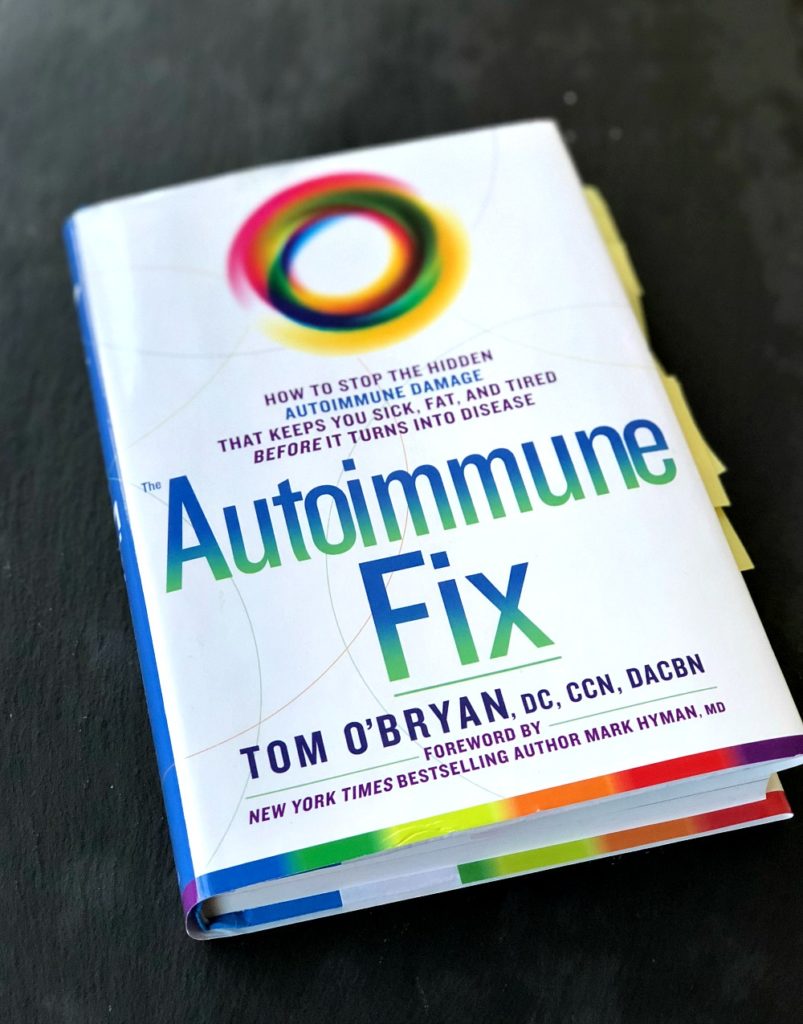
Is there a connection between autoimmune disease and gluten? As many people turn to the gluten-free diet to find relief from a variety of autoimmune-related symptoms, many wonder if gluten holds the key to understanding the triggers of autoimmunity. This article is for informational purposes only and is not meant to treat or diagnose any condition. Please read my disclosures.
The National Institutes of Health (NIH) estimates that up to 23.5 million Americans suffer from autoimmune diseases. Of those sufferers, 75 percent are women.
One autoimmune disease, celiac disease, affects 1 in 100 people worldwide, making it one of the most common autoimmune diseases in the world.
Out of the 100+ autoimmune diseases, celiac disease is the only autoimmune condition in which the trigger (gluten) is known. Gluten is a protein found in wheat, rye, barley, and sometimes oats.
Knowing the trigger (gluten) for one of the most common autoimmune disorders in the world may help researchers one day figure out the triggers and drivers of autoimmunity.
In this article, I’ll share more about the ins and outs of autoimmunity, treatment options, as well as whether or not the gluten-free diet can improve symptoms related to autoimmune disease. (Hint, evidence suggests there is a valid connection between autoimmune disease and the gluten-free diet.)
What is Autoimmune Disease?
An autoimmune disease is when the body’s immune system becomes confused and mistakenly attacks healthy tissue instead of true foreign invaders in the body.
For example, the immune system may think it detects a foreign invader, such as a virus, bacteria, toxin, cancer cells, foreign object, etc., so it produces antibodies that attack – and hopefully kill – those perceived offending invaders. This is a normal immune system response and is why humans have been able to fight off infections, viruses, and other pathogens over time.
However, in people with autoimmune diseases, the immune system becomes confused and begins to attack healthy tissue vs. foreign invaders. The reason for this confusion is unknown, and in all autoimmune diseases, except for celiac disease, the trigger or driver for this immune system confusion is unknown.
Today, there are more than 100 classified autoimmune diseases, including but not limited to:
- Addison’s disease
- Celiac disease
- Crohn’s disease
- Dermatitis herpetiformis
- Fibromyalgia
- Graves’ disease
- Guillain-Barre syndrome
- Hashimoto’s thyroiditis
- Inflammatory bowel disease
- Lupus
- Lyme disease (chronic)
- Multiple sclerosis
- Psoriasis
- Rheumatoid arthritis
- Sjögren’s syndrome
- Type 1 diabetes
- Ulcerative colitis
- Vitiligo
Where in the body the immune system attacks the healthy tissue will depend on the autoimmune disorder. In people with Hashimoto’s thyroiditis or Graves’ disease, the immune system mistakenly attacks the thyroid. In people with Rheumatoid arthritis, the immune system attacks the joints. And in people with fibromyalgia, the immune system attacks the muscles.
In people with celiac disease, the immune system becomes confused and attacks the healthy tissue surrounding the small intestine every time someone with celiac eats gluten. The small intestine is responsible for feeding every organ and cell in the body. When it becomes damaged, a person with celiac disease can become malnourished, which in turn can then lead to a slew of celiac-related symptoms.

Treating Autoimmune Disease
Because the trigger for an autoimmune reaction in people with celiac disease is gluten, removing the protein from a person’s diet can stop an autoimmune reaction in its tracks. No gluten means the immune system won’t produce antibodies to gluten.
Because of the celiac-gluten connection, many researchers have wondered if gluten might be the trigger behind other autoimmune diseases.
While the research doesn’t show that gluten is the trigger of autoimmune disease outside of celiac disease, the research does show that the gluten-free diet is an effective treatment option. In fact, the science is clear when it comes to how a gluten-free diet can vastly improve symptoms related to autoimmunity.
Perhaps the most epic study of all came out in 2022 with the stunning headline, “Gluten-free diet can ameliorate the symptoms of non-celiac autoimmune diseases.”
In this study, leading autoimmunity researcher Dr. Yehuda Shoenfeld, along with a team of researchers, connected the dots between autoimmune diseases and gluten. They came to the conclusion that the gluten-free diet can lessen or eliminate symptoms related to autoimmune disease in dozens of autoimmune disorders.
In fact, Dr. Shoenfeld and his team found that 65 percent of patients on a gluten-free diet experienced reduced symptoms. These researchers concluded that the gluten-free diet could “suppress several harmful” gastrointestinal events in people with autoimmune diseases.
Again, gluten is not the trigger of autoimmunity (outside of celiac disease), but it does seem to worsen symptoms in the majority of autoimmune disease sufferers. (Read: What Causes Celiac Disease and Can It Be Prevented?)
Why Does the Gluten-Free Diet Help Autoimmune Symptoms?
Researchers are just beginning to understand the intricacies of the microbiome and how adverse changes in gut bacteria can affect – and even be a catalyst for – disease.
And while researchers don’t know for sure why the gluten-free diet relieves so many symptoms related to autoimmune disease, the general consensus is that gluten is bad for the gut.
The gluten protein is hard to digest, and, in a groundbreaking study, researchers discovered gluten causes inflammation in all humans who eat it, not just in those with celiac disease and non-celiac gluten sensitivity.
Given that gluten is a highly inflammatory food, the protein is capable of altering the gut microbiome, which can lead to intestinal permeability or leaky gut.
When someone removes gluten from their diet, they deter inflammation and are then able to start to heal and seal their damaged intestinal walls.
Furthermore, eating anti-inflammatory foods, like plenty of fresh fruits and vegetables and naturally gluten-free whole grains, can aid in healing the gut, as can probiotics and select supplements, such as fish oil, which has been proven to reduce inflammation inside the body.
The Case Studies Don’t Lie
While the science related to the triggers, drivers, and treatments of autoimmune disease is still evolving, and there are still many unknowns, a few things remain true.
There are stories upon stories of people managing their autoimmune symptoms by eating a gluten-free and anti-inflammatory diet.
Dr. Susan Blum, the author of The Immune System Recovery Plan, talks about how she healed her body from Hashimoto’s disease by eating gluten-free and following a nutrient-dense diet.
Andrea Beaman, a well-known holistic health expert, healed herself from thyroid disease through a gluten-free and nutrient-dense diet.
Dr. Terry Wahls, who, like many physicians, once focused on treating her patients’ ailments with drugs and surgical procedures, became a believer in the power of food and its role in healing autoimmunity after she was diagnosed with multiple sclerosis.
In her best-selling book, she writes about how modern medicine failed her. She discusses how her disease debilitated her to the point that she was relegated to a tilt-recline wheelchair. She was told she’d never walk again.
Taking matters into her own hands, Dr. Wahls adopted a nutrient-rich, gluten-free, paleo diet and reversed her symptoms so much so that she was not only able to walk again but also go on 18-mile bike rides.
Furthermore, in this 2017 article from Prevention Magazine, eight women talk about dietary changes that helped them control their rheumatoid arthritis symptoms.
One woman (Carolyn) says her RA symptoms “go away” when she eats clean and avoids dairy and gluten. Another woman (Meredith) says an Autoimmune Protocol diet (AIP), which is a paleo-based diet, reduced inflammation and helped her control her RA symptoms. Another woman (Erin) cut out gluten, dairy, and refined sugar and found it helped her control her symptoms, too.
The list goes on and on of people sharing stories of how dietary changes helped them manage their autoimmune symptoms.
There is No Magic Pill
If you’re one of the millions of people suffering from an autoimmune condition, it might be time to look at the food on your plate and assess how it might help you manage or “ameliorate” your autoimmune-related symptoms.
Healing your gut, avoiding highly-inflammatory foods, and eating a whole foods-centered diet, may help you manage your symptoms and even put your disorder into remission.
Taking out potentially harmful foods and adding in proven nutrient-dense foods may be the key to treating and managing autoimmune diseases in the future. A positive change in your diet may help you feel better, reverse disease in your body (like it did for Dr. Wahl’s), and/or put your symptoms into remission (like it did for me).
Remember, no one heals in a straight line, and you may not get instant results upon going gluten-free. Just as a disease can take years to manifest, it can take years to reverse the damage.
Current research suggests that gluten may hold the key to treating autoimmune diseases beyond celiac. There is much to learn about the role of gluten in potentially triggering and treating autoimmune diseases. Future research will shed more light on this connection.
Additional Reading
If you have an autoimmune disease and need to go gluten-free fast, check out the Gluten-Free Made Easy Course I created in collaboration with Dr. Tom O’Bryan.